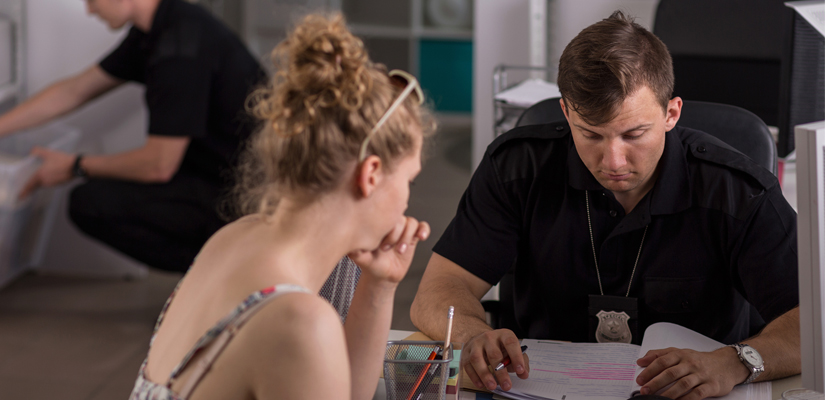Since the inception of the “911 emergency” system decades ago – emergency police and medical response has evolved into a well oiled machine. Response times have gotten shorter, more modern resources are employed, communications are better, and the calls are recorded and stored better and longer. I’m sure most people have seen at least one news story on television where they played back a “911 emergency call” for dramatic affect.
I believe that it was the need for caller identification for the “911 emergency” system which fueled the advancement of caller ID technology. That technology is now an integral part of most, if not all, “911 emergency” systems. I understand there are still some “911 emergency” systems on the wireless end which may not have instant caller ID and because of the mobile nature of wireless telephones; it takes more technology to locate the source of the call. But for the most part when you dial “911”, your phone number, and in most cases your name and address, will instantly appear on a screen for the dispatcher to assist in directing whatever resources are needed as quickly as possible. Keep in mind the goal of the “911 emergency” system is a prompt and thorough response.
You cannot call “911” and simply hang up and forget about it. They will call you back to inquire about the emergency nature of your call. In most cases even of you tell them it was a mistake you may still get a visit from the nearest patrol officer – just to make sure everything is okay. “911” is for emergencies and if you have an emergency you should call. But, if you are having an argument with your spouse or some other member of your household you should think very carefully before you dial “911 emergency”. Once you set the wheels in motion there may be no turning back. All it takes is for the dispatcher to hear you crying or someone yelling in the background to instantly dispatch the nearest patrol car to your location. And once on scene the police are duty bound to investigate the matter.
Unlike years past, the police cannot simply come to your house and calm everybody down and leave. If there is a red mark on someone or someone tells the police that someone else touched them during the argument then someone is going to jail. Not only that, but someone is going to be dealing with the Court system as well.
These days, Domestic Violence has a separate courtroom dedicated to hearing just those cases. The District Attorney’s office has a special team of attorneys to prosecute domestic violence cases, called a “Task Force”. These attorneys receive additional training for dealing with domestic violence cases. Over the past decade or so, whatever slack or discretion they had has slowly disappeared. Sometimes it is like dealing with robots.
There is a whole industry which has evolved around domestic violence – that is anger management counseling and other domestic violence classes. These classes are mandatory for every person convicted of domestic violence, they cost money, and they are very picky about not being late or missing the class.
There are other “hidden” penalties for domestic violence as well – for instance in the state of California, you may be forbidden to possess firearms for 10 years after a conviction for domestic violence. And there is a federal law which says you can never possess a firearm again. If you work in law enforcement or are active military – forget about it – your career is over!
A domestic violence conviction may also impact your ability to obtain certain licenses in the future; most notably nursing licenses, day care license, and licenses to care for the elderly. I mean, who wants a violent abuser taking care of their loved ones? Right?
So what does all that have to do with calling “911 emergency”? You might not believe the kind of crap that gets prosecuted as Domestic Violence these days. And if you call 911 for some “BS” argument with someone in your household, especially your spouse or significant other, there are various ways for them to be prosecuted. The DA could charge them with domestic battery which means if they simply touched you in anger in a “harmful or offensive” manner, they are guilty. They will thus be entitled to all of the penalties which accompany a domestic violence conviction. Even worse, if your loved one grabs you and leaves a red mark or bruise, the charge will be infliction of corporal injury. Thus, once again entitling your loved one to be treated and punished like a criminal.
Unlike years gone by, the cops cannot come to your house and see that someone has been “injured” (no matter how slight) and not arrest the perpetrator. The reason of course is a very good one. In the past, the cops would calm you down, talk to the perpetrator, tell him not to do it anymore, and if you agreed, they would leave and not come back – maybe not even if you called them again. The policy of the past left police departments across the country exposed to liability to people who were subsequently injured or even killed by their so called loved ones after the cops came and left the scene of a domestic disturbance. So nowadays the cops play it better safe than sorry. They arrest the perpetrator and let the court system deal with the problem.
But the problem is that not every little argument with your spouse, is worth getting the cops and the court involved. I have been married for over 27 years and I know that every couple has their bad days and we sometimes argue over nonsense that anyone else would say is ridiculous. And while I do not condone violence, I know of many instances where arguments have gotten out of hand; even to the point where someone has gotten shoved or slapped, but certainly not hurt or “injured” in the traditional sense of the word. I also know and appreciate why the system must treat offenders equally and that our justice system is the only way to force people to change their behavior.
Certainly domestic violence needs to be prosecuted, but think carefully before you trigger that system, because the level of discretion for the police and prosecutors has changed and these days your case will be more likely to go all the way to trial for some minor incident. I know of many cases where the victim has begged the prosecutor to drop the case against their loved one and even filed a formal Request for Dismissal of the case. Those people all wish they could take back the call to “911” because the incident really was a minor one, but the police and the court are duty bound to protect you and they will do so zealously with or without your help. Believe it or not, they do prosecute victims who fail to show up for court to testify against their loved ones. I know of at least one case where the victim and the perpetrator were both in jail at the time of the trial because the victim ignored the Subpoena to appear in court and testify.
So, unless it really is an emergency and unless you really are at risk for injury – then think carefully before you dial “911 emergency”.



